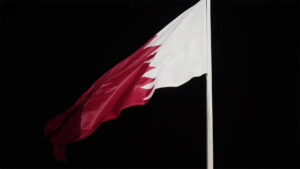With the recent attack on Moscow, I received some requests to do a breakdown on the geopolitics of ISIS. First things first, there are two largely unaffiliated groups at play here – ISIS-Khorasan and the more widely known, ISIS.
The original ISIS (aka the Islamic State of Iraq and Syria) primarily operates in the middle Fertile Crescent region. In recent years ISIS has not done well, losing control over all the territory it once controlled, being reduced to little more than a strategic nuisance.
ISIS-Khorasan has no specific region in which it operates, but rather targets Shia populations and engages in violent activities against secular governments it perceives as oppressing Muslims, such as Russia.
Here at Zeihan On Geopolitics we select a single charity to sponsor. We have two criteria:
First, we look across the world and use our skill sets to identify where the needs are most acute. Second, we look for an institution with preexisting networks for both materials gathering and aid distribution. That way we know every cent of our donation is not simply going directly to where help is needed most, but our donations serve as a force multiplier for a system already in existence. Then we give what we can.
Today, our chosen charity is a group called Medshare, which provides emergency medical services to communities in need, with a very heavy emphasis on locations facing acute crises. Medshare operates right in the thick of it. Until future notice, every cent we earn from every book we sell in every format through every retailer is going to Medshare’s Ukraine fund.
And then there’s you.
Our newsletters and videologues are not only free, they will always be free. We also will never share your contact information with anyone. All we ask is that if you find one of our releases in any way useful, that you make a donation to Medshare. Over one third of Ukraine’s pre-war population has either been forced from their homes, kidnapped and shipped to Russia, or is trying to survive in occupied lands. This is our way to help who we can. Please, join us.
TranscripT
Hey everybody. Peter Zeihan here coming to you from Frigid Colorado. We’re taking a entry from the Ask Peter System today in the aftermath of attacks by the Islamic State of Khorasan on Iran and more recently on Russia. I was requested to do a geopolitics of ISIS video. So here we go. Couple of things to keep in mind. First of all, ISIS’s and ISIS Khorasan are two very different groups.
So I can do a geopolitics of ISIS. ISIS’s core power is in the middle Fertile Crescent between western Syria and central Iraq. So basically, you’ve got the Euphrates Valley that goes from the Persian Gulf up through central Iraq into western Iraq. Northern Iraq then comes back down to the cities of harm, Hama and Aleppo or Aleppo, excuse me.
Well, that is the zone that technology and people and ideas and trade are percolated back and forth through a lot of human history, especially the earlier days. And in that zone, the thing to remember is that the crescent is very, very, very thin. While you do have Mesopotamia in the east, where the Tigris comes into play, in the zone between the rivers, it is a major agricultural zone.
And while you do have more rainfall in extreme western Syria, when the Lebanon mountains merge with the the highlands that eventually become Anatolia in the middle, you only have the Euphrates. And even in modern days with industrial level technology, in many cases, the green belt where you can grow food in the central Euphrates region is only a few miles from north to south.
And because of that, they’ve never been able to develop kind of the dense population centers because there’s never enough food production. And the zones that you can do something with are very, very skinny and very, very worn, which makes it very difficult to patrol it. So think about this this way. If your city was a half a mile wide but 20 miles long and the proportions are much worse for Iraq, if you were of your police station is getting all the way down and all the way back would be difficult.
You want something that’s spread out from a central point like, you know, say, a Chicago or Houston or Dallas or most of our cities. It just makes a civilizational penetration much more difficult and eventually hit hard. Does it do anything? So this is the zone that ISIS’s from water is limited. There’s only one source aside from the oases, and either you control it or you don’t.
And so geopolitics, that region tend to be very visceral and very desperate. And this is part of the reason why ISIS is so violent, because it is a battle for survival among groups every single day. Now, it also means that groups like ISIS are not long for this world. If you look at the region from a broader perspective, if you go further west, you hit the Levant, which has powers like Israel and the core of Syria to go north.
You get into Anatolia and the Turkish territories, and if you go east, you get into Mesopotamia, which is have been a cradle of civilization for quite some time. This zone in the middle can’t do anything. And the zone in the middle has never been powerful enough to penetrate into any of those other three zones. So the only time this zone in the middle matters at all is when all three of those major areas are off light at the same time.
And if you go back to ISIS’s heyday ten, 15 years ago, that’s exactly where we were. Syria was in a civil war that the central government had almost lost. Iraq was reeling from the effects of the American occupation, was not able to patrol its own territory, much less things on its fringes. And the Turks had not yet reemerged from their century long self-imposed geopolitical sleep.
It was a very different situation. And so ISIS was able to form, recruit, expand, dominate groups and basically go on a series of small genocides. It was pretty nasty. Now, that’s not our situation. The Syrian government has, for the most part, stabilized. Even if the civil war is not quite over. The Turks are back in the game and are crossing the border regularly.
And Iraq is a power worthy of its name again. And so ISIS is basically fallen from controlling territory to just a few outposts that move around and a general insurgency in some of the least valuable property in the Middle East. So that’s icis. ISIS Khorasan is different. ISIS chorus on things that ISIS’s a bunch of wimps because they don’t kill enough people, specifically Shia, ISIS’s primarily Sunni.
I Scorsone as well. And they see Shia as the worst apostates of all and so they are not interested in holding territory. They are interested in taking the battle wherever it may go and wherever there’s a secular government. And so that has taken them against the Taliban, which they think are a bunch of horses. Let’s take it up against the Iranians who are Shia.
And that’s taken them against the Russians, who they see as oppressing their fellow Sunni followers. Because of this, you can’t do a geopolitics of ISIS Khorasan because they’re not interested in territory. They don’t have a home territory. They’re actually fairly egalitarian as to who they take into their ranks as long as you’re not a Shia. And in the case of the Russian space, there are a lot of subjugated Muslim populations with probably the Uzbeks being the most important that are willing to join violent groups.
And so one of the things that it appears to be with ISIS course on is they’ve been recruiting pretty aggressively from within the former Soviet sphere. Uzbeks, Tajiks, some Kyrgyz, maybe some to some Turkmen, and hopefully not, but most likely. So Dagestan is Chechens about Kurds and Tatars. Those are all people who live within the Russian Federation today.
So the danger here for the Russians is very, very real from a security point of view, an analogy, a logical point of view. But you can’t do a geopolitics of ISIS’s or ICE’s Kurdistan because they don’t have a core territory. They’re a splinter group that’s based entirely on ideology. So ISIS is not the sort of group that can expand much beyond its current footprint and certainly not beyond that part of the Middle Euphrates, where from time to time they can kind of expand its course on as a different sort of category.
They are not constrained and it could very well be coming to a place near you. That was way more inflammatory than he deserved. While there have been certainly plots interrupted by ISIS because American interest, there’s no sign that the uproar in the United States for that yet.








